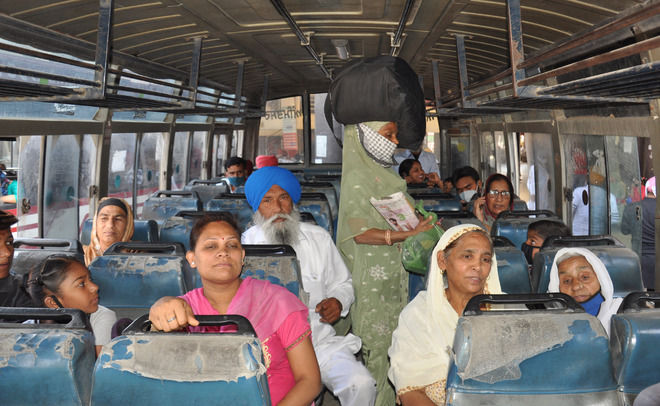THE free bus travel scheme for women in non-AC, intra-state buses across Punjab, initiated by the state government in 2021, has significantly empowered women by enhancing their mobility and providing them substantial financial relief. Serving as a lifeline, it enables girls and women to commute to better educational institutes and workplaces and even visit their family members without the burden of travel costs or dependence on others.
The success of the scheme is evident from official data: in April 2021, around 61 lakh women benefited from this scheme every day in the state. By November 2022, this figure had nearly doubled. However, the state-run Pepsu Road Transport Corporation (PRTC) is facing a resource crunch, with the government owing the PRTC over Rs 250 crore in reimbursement for the free travel provided to women. The delay in clearing these dues has left the PRTC struggling to release salaries and pensions. The government must explore other avenues to address concerns over the sustainability of this service. A cross-subsidy mechanism is a viable option to mitigate financial losses. By slightly increasing fares for other passengers or introducing additional charges on premium services, the government can offset the costs of the scheme. Public-private partnerships as part of corporate social responsibility and targeted subsidies could also provide some financial support.
The free bus service has undeniably improved the lives of women in Punjab, enabling greater equity and participation in education, work and family activities. Ensuring the scheme’s long-term sustainability is crucial as it is bound to foster socioeconomic growth in the state. Promoting women’s empowerment is a crucial developmental objective as they tend to invest more in their children’s education, health and nutrition, which, in turn, boosts economic growth. Social capital is recognised as one of the pathways through which empowerment can be achieved.









